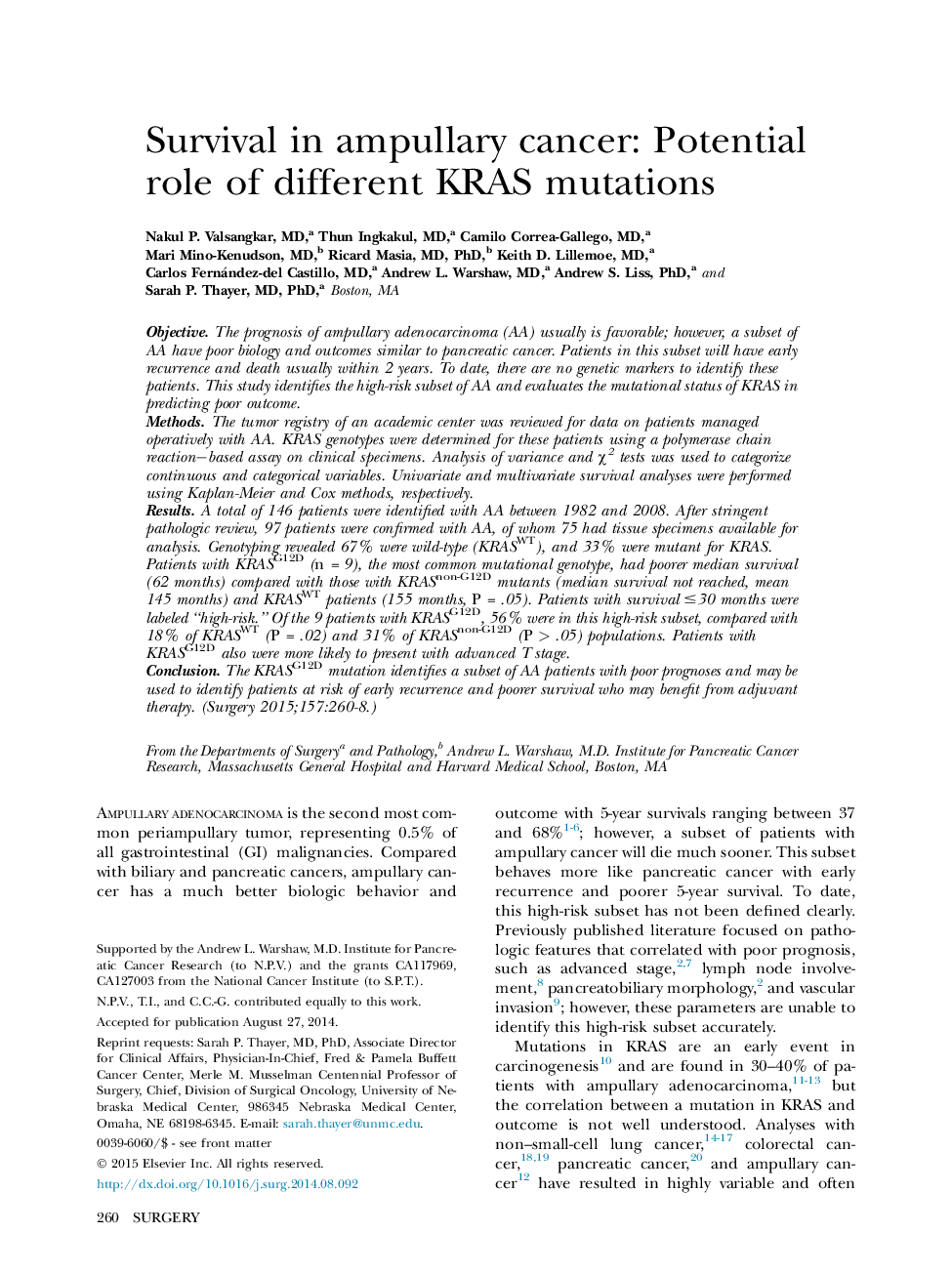| کد مقاله | کد نشریه | سال انتشار | مقاله انگلیسی | نسخه تمام متن |
|---|---|---|---|---|
| 6255470 | 1289244 | 2015 | 9 صفحه PDF | دانلود رایگان |

ObjectiveThe prognosis of ampullary adenocarcinoma (AA) usually is favorable; however, a subset of AA have poor biology and outcomes similar to pancreatic cancer. Patients in this subset will have early recurrence and death usually within 2 years. To date, there are no genetic markers to identify these patients. This study identifies the high-risk subset of AA and evaluates the mutational status of KRAS in predicting poor outcome.MethodsThe tumor registry of an academic center was reviewed for data on patients managed operatively with AA. KRAS genotypes were determined for these patients using a polymerase chain reactionâbased assay on clinical specimens. Analysis of variance and Ï2 tests was used to categorize continuous and categorical variables. Univariate and multivariate survival analyses were performed using Kaplan-Meier and Cox methods, respectively.ResultsA total of 146 patients were identified with AA between 1982 and 2008. After stringent pathologic review, 97 patients were confirmed with AA, of whom 75 had tissue specimens available for analysis. Genotyping revealed 67% were wild-type (KRASWT), and 33% were mutant for KRAS. Patients with KRASG12D (n = 9), the most common mutational genotype, had poorer median survival (62 months) compared with those with KRASnon-G12D mutants (median survival not reached, mean 145 months) and KRASWT patients (155 months, P = .05). Patients with survival â¤30 months were labeled “high-risk.” Of the 9 patients with KRASG12D, 56% were in this high-risk subset, compared with 18% of KRASWT (P = .02) and 31% of KRASnon-G12D (P > .05) populations. Patients with KRASG12D also were more likely to present with advanced T stage.ConclusionThe KRASG12D mutation identifies a subset of AA patients with poor prognoses and may be used to identify patients at risk of early recurrence and poorer survival who may benefit from adjuvant therapy.
Journal: Surgery - Volume 157, Issue 2, February 2015, Pages 260-268